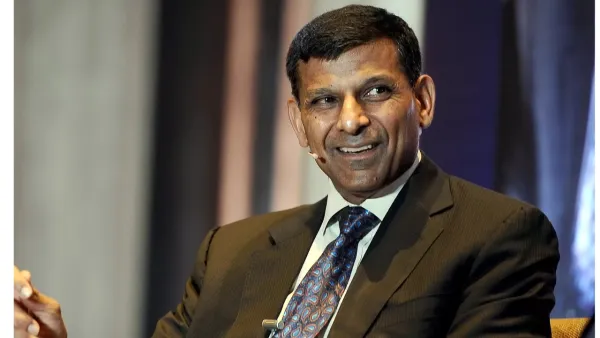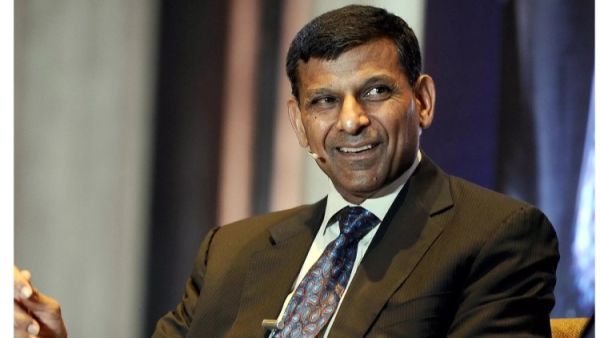
The book “Breaking the Mould: Reimagining India’s Economic Future,” written by famous economist and former governor of the Reserve Bank of India Raghuram Rajan and co-author Rohit Lamba, has been longlisted for the coveted Gaja Capital Business Book Prize 2024. This book, which addresses the urgent issues facing India’s economy from automation and job creation to the value of investing in human capital, comes out at a pivotal moment.

In this exclusive conversation, Rajan gives his thoughts on the road India has to travel to guarantee equitable growth, sustainable development, and global competitiveness. He also delves deeply into the concepts that served as the inspiration for “Breaking the Mould.” We discuss important issues including the democratic advantage of India, the future of automation, the value of entrepreneurship, and the pressing need for change in the healthcare and education systems.
Rajan and Lamba highlight the significance of strategic changes in “Breaking the Mold” to capitalize on India’s demographic dividend and guarantee economic success. Here are Rajan’s thoughts on the chances and difficulties that India confronts.
1. What motivated Mr. Lamba and you to work together on Breaking the Mold and concentrate on India’s economic future at this particular time?
India is witnessing a demographic dividend, meaning that more young people are joining the workforce, making this a pivotal time. East Asian nations have historically seen their fastest development during these times. Are we headed in the correct direction to provide these young people with jobs? was our key question. Does our approach still make sense in a changing world? The novel was inspired by these ideas.
2. You highlight investing in human capital in the book. How do you see India enhancing its system of education to produce a workforce with a high level of skill?
The value-added components of production are often service-oriented, and the book emphasizes the convergence of manufacturing and services. India needs highly skilled people who are well-educated and in excellent health if it is to prosper in these fields. Even among those who possess a degree, the majority of young Indians attend substandard educational institutions, notwithstanding the occasional exception. Every aspect of life has to be improved, including combating child hunger, improving elementary and secondary education, and guaranteeing the quality of college professors. Global competitiveness demands a competent labor force, particularly with the growth of technology and artificial intelligence.
3. In light of the wider world, how do you see democracy advancing India’s economic development?
India’s democratic heritage is essential to improving public services. People may call for improved healthcare and education in a democratic society. Decentralization is necessary to bring governance closer to the people, particularly in local governments like panchayats and municipalities. Furthermore, by permitting criticism and rectification of governmental activities, democracy facilitates policy changes. Additionally, as democratic nations are often more inventive, it encourages invention.
Finally, democracy fosters trust. For instance, the world’s suspicion of China’s autocratic government has impacted how its goods and services are received. Democratic ideals may help India export more services that need a lot of data.
4. How can India maintain employment prospects for a sizable workforce while striking a balance with automation?
Although automation is unavoidable, it should complement labor rather than replace it. For example, when used well by knowledgeable programmers, AI may increase productivity in programming. To increase productivity rather than be replaced by technology, workers must be educated to coexist with it. The focus is on talents and creativity, with technology serving to enhance rather than replace human capabilities.
5. You point out that supporting high-skill industries is essential for expansion. Which industries have the most promise for India?
Across all industries, we should concentrate on establishing the foundations, which include facilitating company startup, supplying land and utilities, encouraging foreign investment, and worker training. More emphasis should be placed on education and skill development than on significantly supporting certain industries. Our goal is to develop a workforce that is highly trained and able to contribute to industries like manufacturing and services without unduly depending on government subsidies such as the PLI plan, which may not always provide the intended outcomes.
6. What part do you think entrepreneurship will play in India’s future economy?
The book emphasizes the significance of entrepreneurship by highlighting success stories such as PC Mustafa’s. But it’s essential to enable all companies, big and small. The government has to lower the possibility of harassment, provide an atmosphere with equitable opportunities and standards, and make tax laws predictable. Growth in the economy and entrepreneurship will result from this.
7. The disparity between incomes in India is growing. What actions are necessary to address this widening gap?
We should make sure that taxes are collected more effectively and concentrate on giving the impoverished greater access to healthcare and education, rather than trying to level the playing field by taxing the wealthy excessively. Opportunities and respectable careers for their children are what the impoverished really want. A thriving private sector that generates employment is necessary, but it necessitates a skilled labor force, which gets us back to the need of enhancing healthcare and education.
8. What do you want readers, corporate executives, and politicians to learn from the book?
We list the difficulties that emerging nations confront, including automation and protectionism. Even though these may appear overwhelming, India can still achieve its goal of being wealthy before it becomes old. Still, we must reevaluate our present approaches. To attain the economic future we foresee, we must put in the hard work required; coasting along won’t cut it.
9. Are you working on any other novels at the moment?
I’m working on research articles on a variety of subjects, including climate change and monetary policy. Although I’m not working on a book right now, I have a bunch of lectures I need to get ready for next year that could turn into a book. The subject is still up for debate, however.